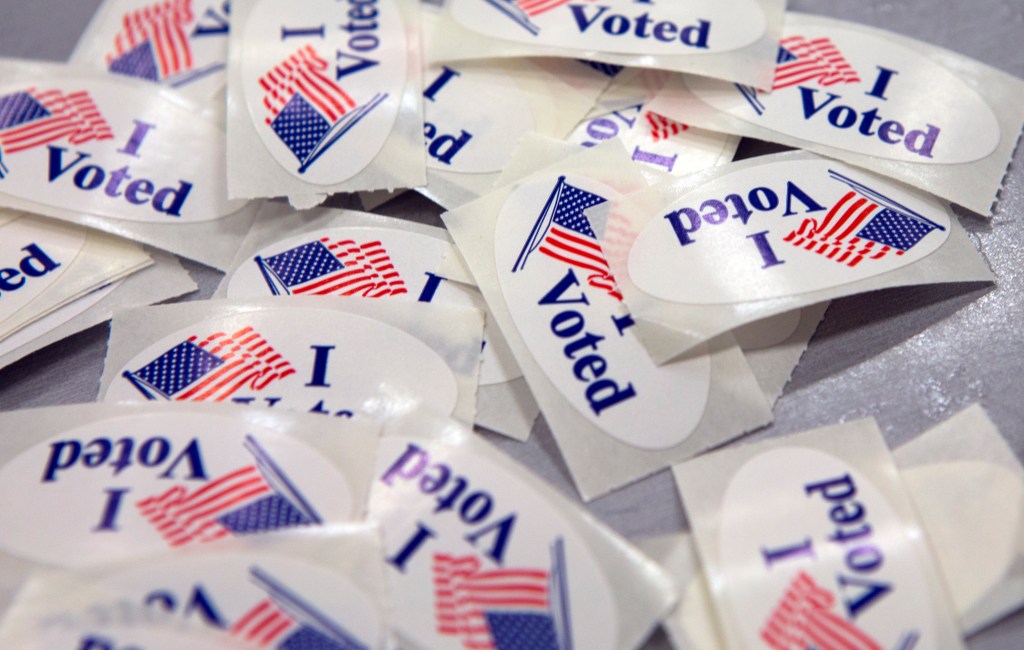The powerful social psychology behind those ‘I voted’ stickers

It’s tiny, usually. No bigger than a fist, for certain. But that unassuming little “I voted” sticker holds significance greater than the adhesive paper it’s printed on.
“It makes the wearer proud, and it reaffirms their values and their self-concept as a good citizen,” said Judith Hall, a University Distinguished Professor with expertise in nonverbal communication and social psychology. “The sticker serves as a function for the self.”
(That’s why people are sad when they don’t get one, or when there’s a shortage.)
Hall said that the stickers serve several peer-pressure functions. First, seeing one on someone else might remind people to vote if they would otherwise have forgotten to do so.
The stickers might “make someone go vote by stimulating their need to be like others and win social acceptance,” she said. It might also make someone feel guilty for not even planning to vote.
“Everyone has conformity motives, no matter who they are,” Hall said. “No one enjoys feeling guilty.”
So those tiny stickers hold powerful social-signaling power. So much so that Hall said she wishes a version that read “I’m going to vote!” were handed out in the weeks leading up to an election.
“Research shows that people who publicly commit to doing something are far more likely to do it than otherwise,” Hall said. “Not honoring such a commitment triggers what we call ‘cognitive dissonance,’ or knowing that one has behaved in a way that’s inconsistent with one’s values or prior promises. Dissonance is a powerful motivator of behavior.”
For media inquiries, please contact media@northeastern.edu.





